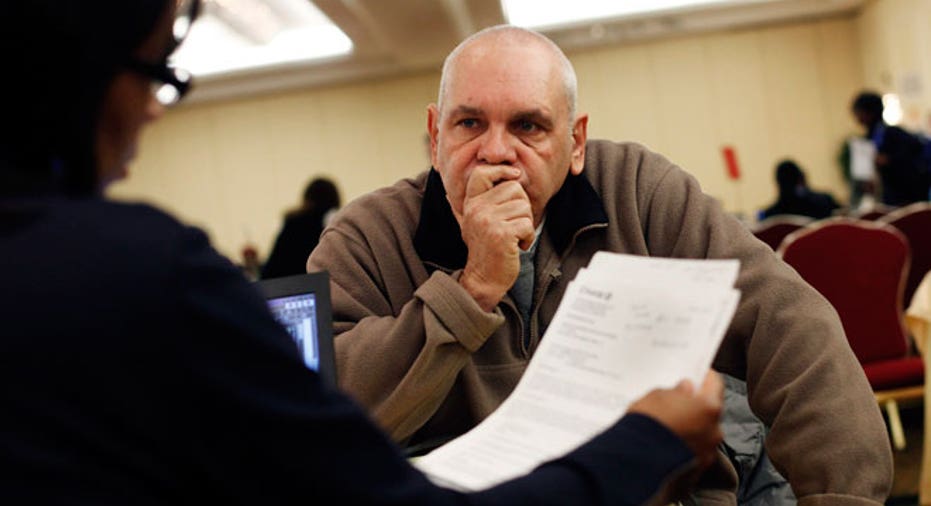You Have Alternatives to the Traditional Mortgage

Low interest rates make a mortgage an attractive means to purchase a home, but if you can’t qualify for one don’t worry, you have options.
“There are different options people can use outside of a traditional mortgage,” says Mike Schenk, senior economist of the Credit Union National Association.
From borrowing from a family member to considering a rent-to-own agreement, potential buyers don’t have to rely solely on a mortgage loan. But Schenk warns to do your homework before making any decisions. “In some cases…the transactions can be complicated and confusing.”
Dipping into a retirement account like a 401(k) or IRA may be tempting to cover a down payment or improve your savings for a lender, but Schenk says that’s “almost always a bad idea” because you’ll have to pay taxes on the withdrawal and penalties if you are below a certain age.
If you do dip into an account, there is a set period in which the money has to be returned. If you lose your job the money could come due in 60 days, according to Donna Skeels Cygan, author of “The Joy of Financial Security.”
“If you’re borrowing from your own retirement, you might be jeopardizing your future financial security.”
Experts say borrowing money from a family member is a better option for both parties: The lender can get a better return than in other conservative investments, and the borrower doesn’t have to come up with a down payment or closing costs.
However, if you do get a loan from a friend or family member, document everything, advises Doug Lockwood, branch president at Hefty Wealth Partners. He suggests making a promissory note and a written contract that both parties agree and sign.
He adds that it’s a good idea to get an accountant or attorney involved because you don’t want the loan to appear as a gift, which would subject the loan to the gift tax. “A person who has money and is probably close to retirement may get a better return than the current bond market,” says Lockwood.
Going the non-traditional route means you won’t be able to take advantage of the mortgage interest tax deduction, but it can make a lot of sense for people who don’t want to take on debt.
Older people, who can afford a mortgage but bristle at the thought of taking on any debt, they can use some of their investments to come up with the purchase price, says Dan McElwee, executive vice president at Ventura Wealth Management.
For instance, he says many whole or variable life insurance policies allow you to take a loan against the principal. McElwee says if you go this route, you have to be careful not to let the policy lapse. Taking a loan against the principal means you don’t have to pay back the money, but your heirs will end up with less money from the life insurance policy. “Some people hate the idea of debt so much they’d rather tap into their existing assets like life insurance.”
If you are looking to purchase an investment property and have a large investment portfolio of investments, McElwee suggests putting it up as collateral. With this strategy, investors would either take out a margin loan, which he says is relatively inexpensive, or a get a mortgage based off their investment portfolio as collateral.
“For people buying an investment property, it’s a unique option because you don’t have to liquidate your portfolio, which creates a slew of tax consequences,” says McElwee.
If you don’t qualify for a mortgage, you can look to enter into a lease-to-own type of contract. This option allows you to pay the owner each month and eventually, the house goes into the borrower’s ownership.
McElwee notes that you will normally end up paying more in interest with this agreement than with a mortgage.
Would-be homeowners can also go with a company like COVE Financial, which offers a mortgage alternative program. The program is designed for people who can afford a down payment and the monthly payment, but can’t get approved for a mortgage.
Using this program, you get prequalified for a set amount and then start the hunt. Once you find a house, COVE buys it and you then enter into two contracts with the company. One is a long-term lease agreement that give you six years to qualify for a mortgage and purchase the home.
During that time period, you pay COVE a lease payment each month. If six years come and go and you can't buy the house, you will face a cancelation fee, which Patrick Flanagan, president and CEO of COVE, says is typically 3% of the purchase price.
At the end of the day, one of the best ways for debt-adverse people to purchase a home is to save up and pay cash. While that may mean a lot of sacrifices and tight budgeting, it also provides a lot of financial freedom.
“The best way is to build savings, but that takes a lot of effort,” says Lockwood. “Few people are willing to wait that long and sacrifice that much.”



















